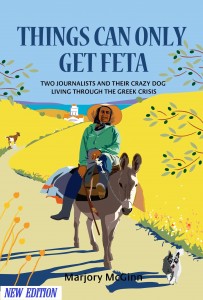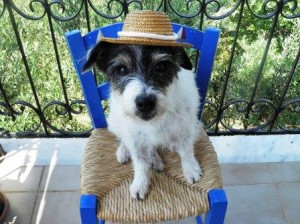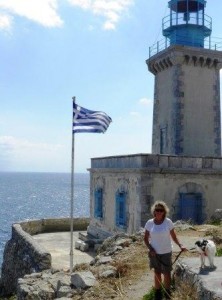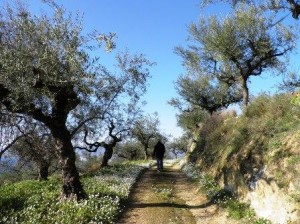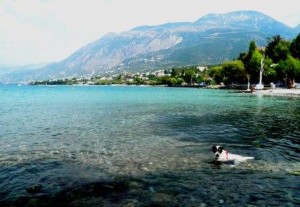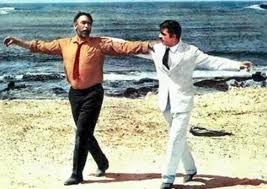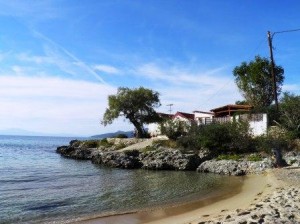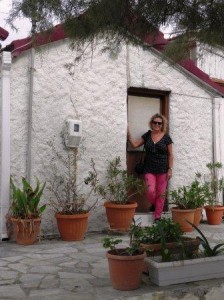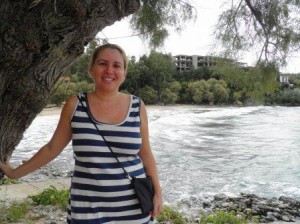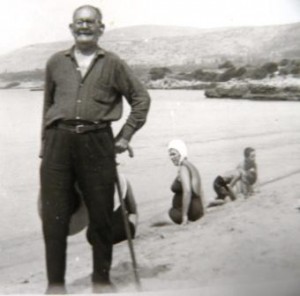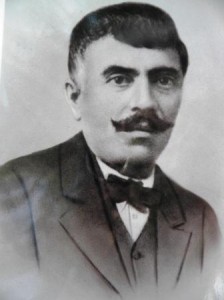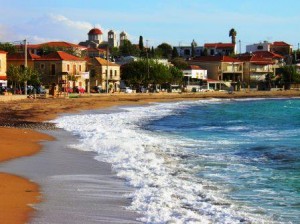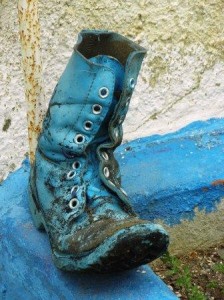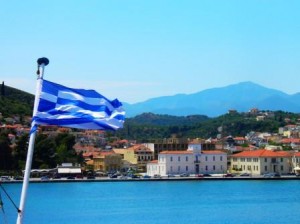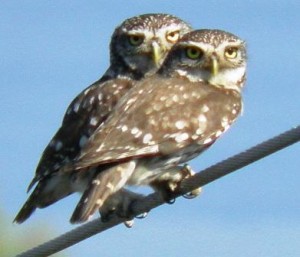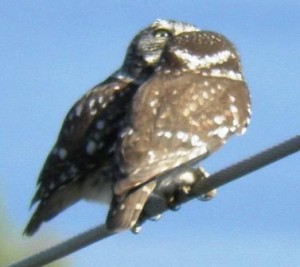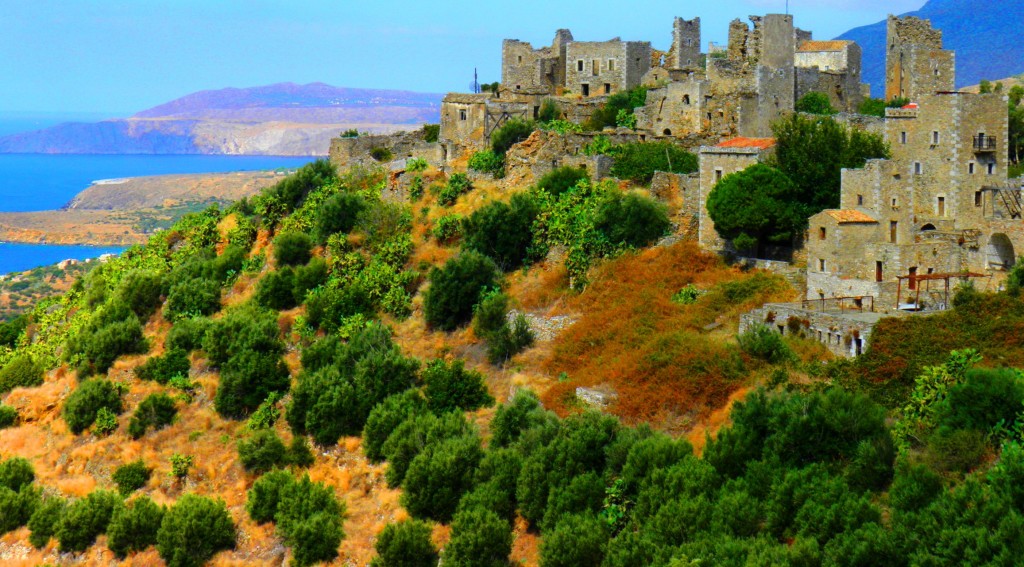CAN you have an adventure in crisis-torn Greece and not come unstuck? Can you take a mad Jack Russell dog to a rural region and not create havoc? Can you ever feel like more than an outsider in a mountain village that has changed little over the centuries?
You might find the answers to these questions, and hopefully have a giggle along the way, in the book based on my first year in the Mani, in the southern Peloponnese, due to be published in July this year. It’s called Things Can Only Get Feta (Two journalists and their crazy dog living through the Greek crisis) by Marjory McGinn.
In the first year of the big fat Greek adventure, along with my partner Jim (which I started writing about in this blog in 2010), we had such an amazing time, having travelled extensively through this beautiful region, and having befriended some wonderful local characters, that I wanted to shape it into a book so that other adventurers/armchair travellers could get a feel for this unique rural way of life.
I was encouraged by many of the regular blog readers who wrote to the website saying how much they enjoyed our mad meanderings in Greece, especially with naughty Wallace the Jack Russell in tow. A big thanks for that and I hope you enjoy the book.
For an outline of the book and details of how to pre-order it, click on this link to take you to the home page of our website: http://www.bigfatgreekodyssey.com
Visit Amazon to buy the book (Kindle version – new edition). A new edition of the paperback will also be available shortly.
Looking back
When we set off in early 2010, it was supposed to be for a year’s adventure only. We aimed to live in the Mani region (middle peninsula of the southern Peloponnese), but we had no idea of the exact location, or what our life would be like, or even if we would find a suitable place to live, especially in the midst of an economic crisis. But that’s the whole point of adventure – stepping right into the unknown and taking whatever comes your way.
The village we ended up in surpassed all our expectations, particularly with regard to the location and the wonderful local characters we met, some colourful British expats, and the mad escapades that would unfold. But other things were difficult, as we outlined in the blog: dealing with Greek bureaucracy, buying a Greek car, surviving the first scorching summer, dealing with alien wildlife (the critters, not the expats) – scorpions, polecats, snakes, hornets.
Then there was the problem of getting a tiny Greek village with typical zero-tolerance of ‘pet’ dogs to accept the crazy, barky, territorial Wallace. Many villagers had never seen a Jack Russell dog before and to their mind, he just looked like a small mutant sheep. To find out how Wallace’s immersion into Greek life panned out, you’ll have to read the book.
One year’s adventure turned into another and in the end we stayed almost three years in the southern Peloponnese, having loved every mad and magical moment. Then there was the Greek crisis, of course. I commented on this in the blog along the way and we did see some massive changes over the three years, particularly in the city of Kalamata where shop closures and business failures were a daily occurrence.
The austerity measures affected everyone in the region, sometimes tragically so, but one thing that never changed was the stoicism of Greek people and their enduring spirit particularly in the face of often spiteful criticism by the international media. Stories from outside the country that depicted Greeks as ‘lazy’ and ‘work-shy’ were not helpful, and yet anyone who has lived in the country will know just how hard most ordinary Greeks do work and strive for a better life, with no state handouts.
In our three years, we travelled the whole of the southern Peloponnese, through the Mani, Laconia and the Messinian peninsula, much of which we have already written about and many places we haven’t got round to writing about yet. I will post some short blogs on these, with photos, over the coming months, and general thoughts about Greek life, as we found it. So please keep reading, and your feedback, as always, is appreciated.
We are currently back in Britain for the time being but are keeping close ties with Greece and look forward to our next big fat adventure there.
Best wishes for a happy summer.
© Text and photographs copyright of the authors 2013
To leave a comment please click on the comment link below
